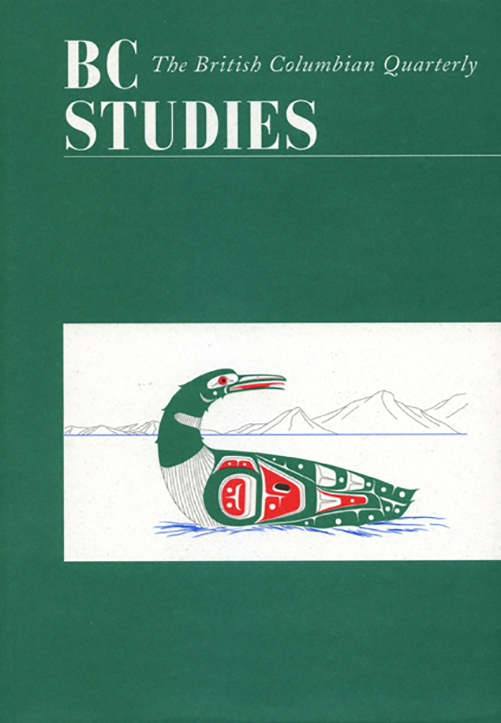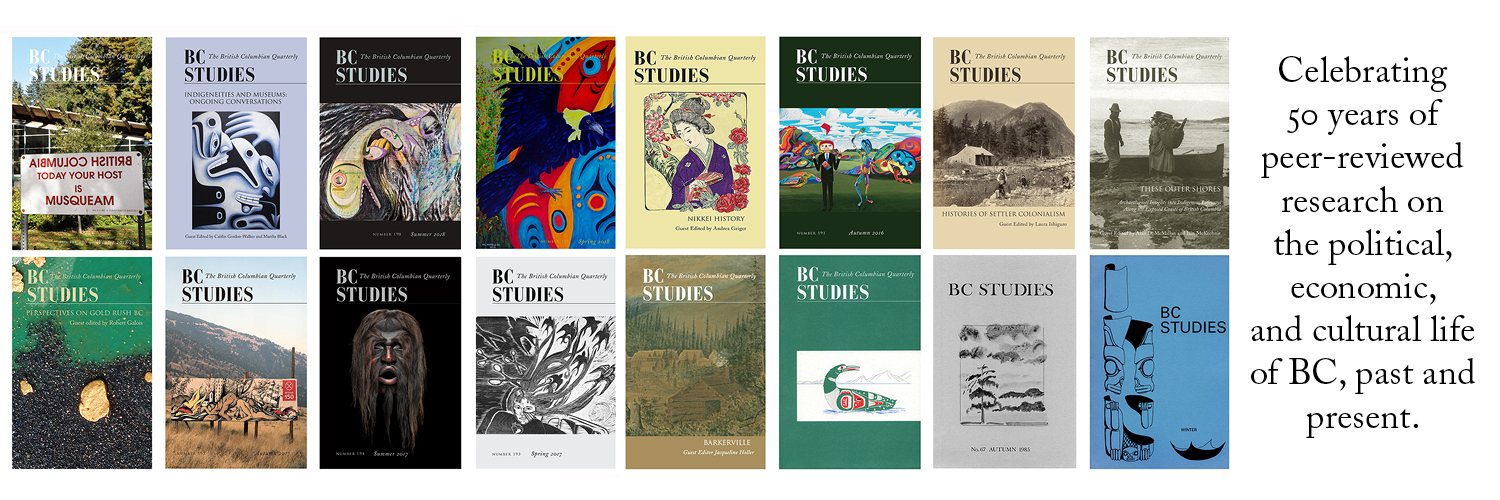A View from the Watchman's Pole: Salmon, Animism and the Kwakwaka’wakw Summer Ceremonial
DOI:
https://doi.org/10.14288/bcs.v0i177.182922Keywords:
Kwakwaka’wakw, Kwakiutl, religion, animism, salmon, fish traps, fish weir, aboriginal culture, Franz Boas, spiritualityAbstract
In the literature, much emphasis has been placed on the Kwakwaka’wakw winter ceremonial with its lore of cannibalism, the taming of a man gone wild, its intriguing dances, vibrant and intricately carved masks, its art, drama, and its interaction with the spirit world. Many of these writings attempt to re-interpret the Boas and Boas-Hunt materials in an effort to gain an understanding of the winter ceremonial’s fundamental meaning. This article moves the discussion of the Kwakwaka’wakw ceremonial in a different direction. By considering the Kwakwaka’wakw summer ceremonial, its connection to salmon and traditional animistic beliefs, we begin to understand how Kwakwaka’wakw cosmology was sensitive to salmon ecology. I argue that Kwakwaka’wakw beliefs connected to the summer ceremonial not only promoted salmon stewardship but that it was upon this belief system and the corresponding practices that the success of the famous winter ceremonial relied.



